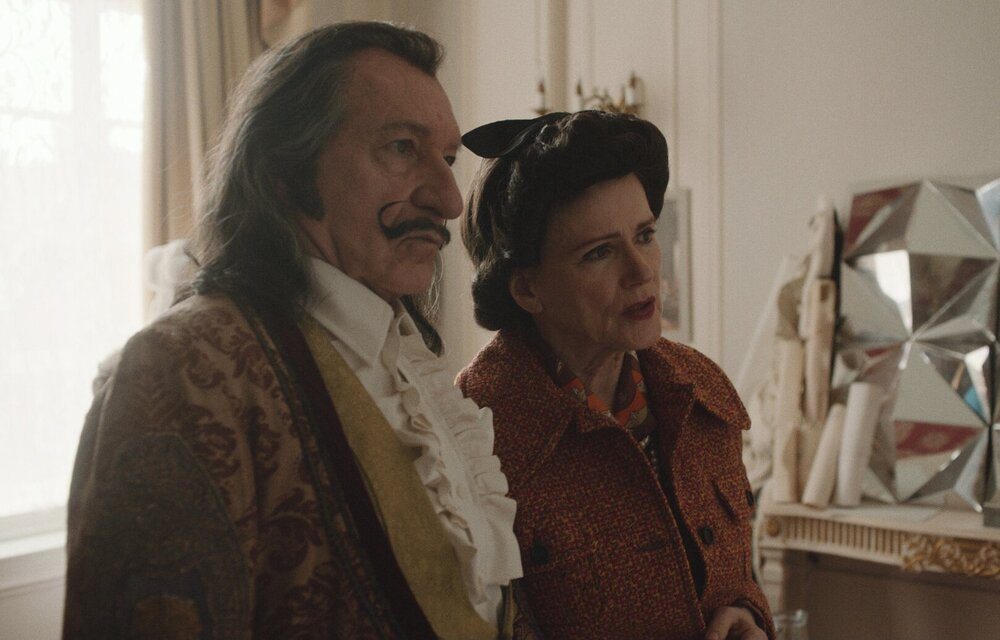Daliland

Ben Kingsley and Barbara Sukowa star in DALILAND. (Photo: Magnolia Pictures)
Going beyond the boundaries of the usual biopic about an eccentric artist, Daliland paints a jumbled picture of a troubled soul.
Ben Kingsley’s performance as famed Spanish Surrealist Salvador Dali goes beyond the title character’s signature handlebar mustache yet offers a muddled glimpse into his artistic inspirations stemming from a tragic past.
Layered with bittersweet ruminations on mortality and legacy, the film focuses less on Dali’s work and more on the whirlwind of decadence and debauchery that marked his later years, enabled by a sycophantic collection of groupies and handlers who position him as a misunderstood bohemian genius.
The film opens in the early 1970s, when Dali is living in New York and coasting on his celebrity. Now in his 60s, he squanders much of his income on lavish parties and impulsive favors for those eager to take advantage of his generosity.
Dali is both an enigmatic showman and a pretentious blowhard, referring to himself in the third person in casual conversation. But insecurities are revealed as a declining Dali must continue working to pay the bills, if only he can stay focused on deadlines.
A newcomer into this world is James (Christopher Briney), a naïve gallery employee who eagerly becomes Dali’s personal assistant. He also catches the attention of his impetuous wife, Gala (Barbara Sukowa), whose eyes started wandering long ago, apparently in part over credit for her behind-the-scenes role in securing Dali’s fame.
From its tension and dysfunction, the film flashes back to happier times, when a younger Dali (Ezra Miller) becomes drawn to a young Gala on a Spanish beach and she becomes his muse.
With stylish period re-creation, director Mary Harron (American Psycho) immerses us in Dali’s extravagant and free-spirited lifestyle, as well as his turbulent marriage.
Kingsley’s fully committed portrayal is both playful and poignant, capturing Dali’s charisma and flamboyance while finding balance with his quieter moments of creative contemplation. German actress Sukowa (Hannah Arendt) likewise adds depth and complexity.
However, the screenplay by John Walsh — the director’s husband — chooses to view the story primarily through the eyes of James, who’s less compelling than those around him.
The film struggles to draw deeper connections between the man and his art, and Daliland ultimately isn’t as insightful or provocative as it aspires to be.
Not rated, 97 minutes.